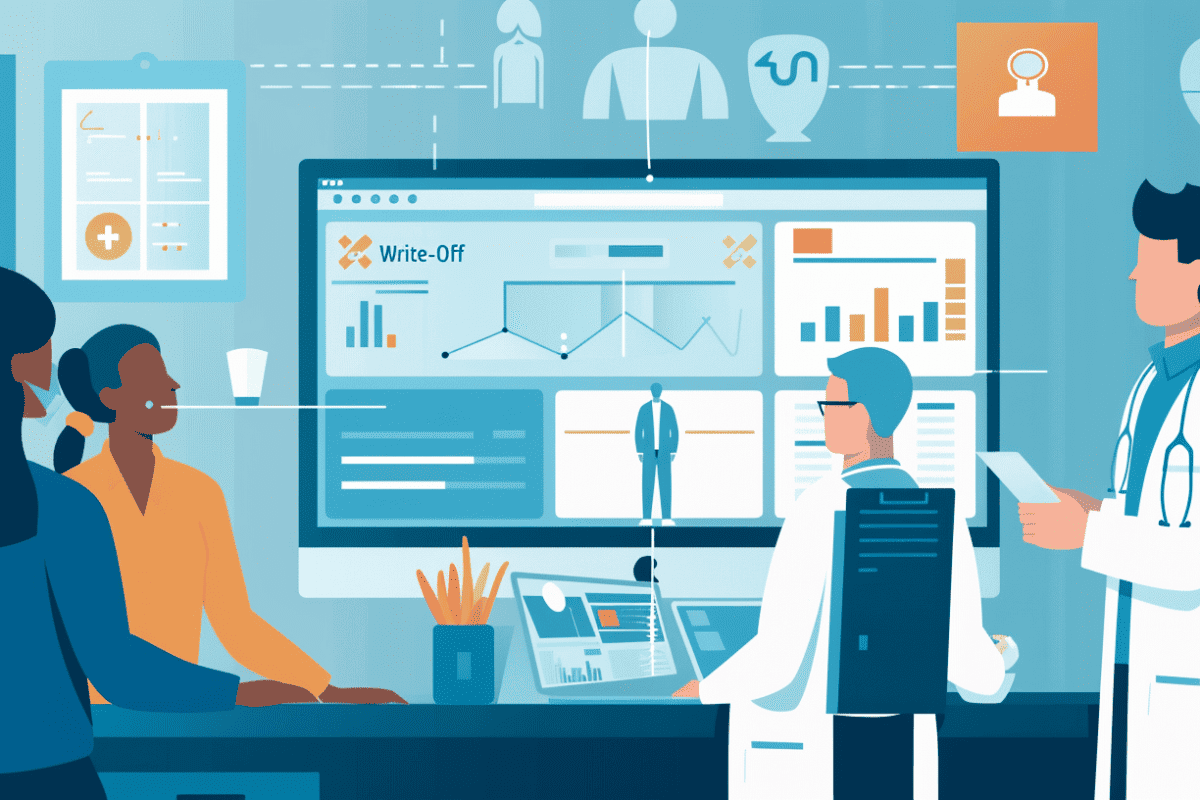Better technology doesn’t always mean better
We already know about the drawbacks of social media. Alarming statistics have emerged in the past decade.
The Royal Society for Public Health UK found that four out of five of the main social media platforms (Instagram, Facebook, Twitter, and Snapchat) had a net negative effect on anxiety levels.
In addition, a significant association has been found between social media use and depression amongst young American adults1.
But how can tech and software help mental wellbeing, rather than harm?
Let’s take a look at 3 ways
More potential for engagement
By 2025, the global
Such a large growth in market size also brings potential to increase engagement with patients.
A frequent complaint amongst healthcare practitioners is the number of missed appointments. No wonder — missed appointments waste precious time and resources.
In fact, the U.S. healthcare system loses $150 billion per year as a result of missed appointments3.
And in the UK, patients no-show 1 in every 20 NHS appointments booked with their GP, at a total cost of more than £216million4.
But for people with anxiety and depression, attending an appointment isn’t always easy.
Such patient groups often face unique challenges when having to travel and meet professionals face-to-face. These can include:
- Lack of energy/motivation to attend appointments
- Stress of having to cope with busy clinic waiting rooms
- Financial pressures of having to travel to treatment bases
Secure online appointment software is emerging in the market, so remote support is becoming more viable by the year.
Appointments can now be arranged via desktop computer, laptop, iPad, or smartphone. As a result, patients will have many more options to choose from if their energy’s low or they can’t afford to travel.
Digital healthcare solutions can reduce or even remove a range of the common causes of missed appointments.
Everybody involved can win here. Patients will be able to access more dynamic care pathways, while practitioners can save time and hit appointment targets.
Easier liaison with a patient’s support team
Individuals with high
This is because different practitioner skill-sets can be required to fulfil a holistic approach to treating
For example, an individual with a high level of generalized anxiety and an eating disorder may struggle to leave their home.
If the individual is in need of treatment input from both a psychologist and a nutritionist, then digital healthcare solutions can provide a better integration of care.
Joint video calls can be arranged with the patient’s consent. The psychologist and nutritionist can then be on the line at the same time to liaise with the patient.
More comprehensive care and more inclusive therapy environments are both worth pursuing for the benefit of people with
‘‘Live’’ behavioral activation
Behavioral activation (BA) is renowned as a personal and customizable therapy for people with depression5.
BA’s focus is on assisting patients to schedule goals and carry out rewarding activities, the kind that are likely to boost the patient’s mood.
With the availability of remote, virtual appointments, therapists can ‘’meet’’ with the patient in the patient’s own home.
In what is likely to be a more comfortable environment for the patient, the therapist can guide the patient to try out ‘‘live’’ activities during the session.
This could include small yet potentially rewarding tasks such as cleaning their room or planning a meal, which aren’t possible to do live in a therapy clinic.
Conclusion
We know too much tech can negatively impact
- Less missed appointments.
- Smoother team-working amongst practitioners.
- ‘‘Live’’ therapies with the patient in their own home.
Benefits such as these would help patients and practitioners alike.
Digital healthcare needs to become mainstream reality now, not in 20 years’ time. How quickly can health services implement what the tech is promising?
Declan Davey,
Freelance Health Copywriter
1. “Association between Social Media Use and Depression ….” 19 Jan. 2016, https://www.ncbi.nlm.nih.gov/pmc/articles/PMC4853817/. Accessed 28 May. 2020.
2. “Global
3. “Missed appointments cost the U.S. healthcare system $150B ….” 26 Feb. 2019, https://aquinahealth.com/2019/02/26/missed-appointments-cost-u-s-healthcare-system-150b-year/. Accessed 29 May. 2020.
4. “NHS England » Missed GP appointments costing NHS millions.” 2 Jan. 2019, https://www.england.nhs.uk/2019/01/missed-gp-appointments-costing-nhs-millions/. Accessed 29 May. 2020.
5. “Behavioural activation for depression; an update of meta ….” 17 Jun. 2014, http://www.ncbi.nlm.nih.gov/pubmed/24936656. Accessed 28 May. 2020.
Declan Davey
Declan Davey is a freelance copywriter for health, medical, and wellness businesses. He has 5+ years of experience working for the NHS and trained as a therapist. Website : https://www.declandavey.com



One comment
MD SABUJ
June 17, 2020 at 5:50 am
Anxiety is often seen as the bad guy, but it can come in handy sometimes. Procrastinators wouldn’t be able to finish a project without it and the stress reaction behind it can enhance our physical and intellectual abilities. Facilitative anxiety may still feel bad, but can help us perform better on a test, while debilitative anxiety is the reason why some people freeze up in stressful situations. Words connected to anxiety are tossed around a lot nowadays. It’s normal to feel a bit confused every now and then, so let’s talk about this a bit more.
Thank you so much for your information.